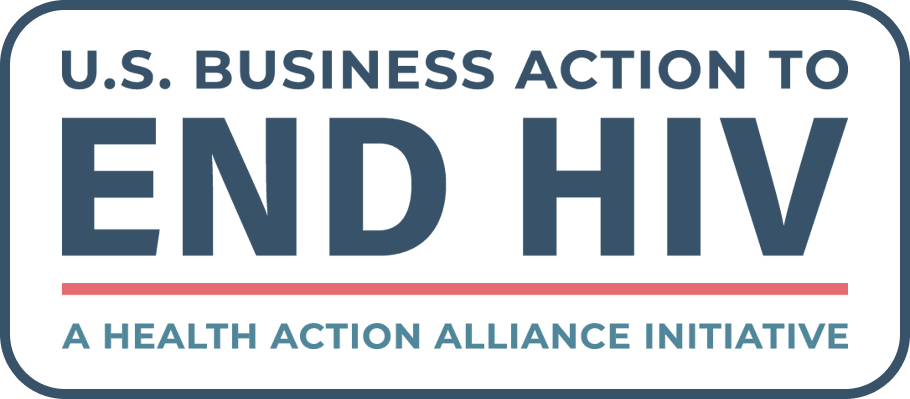
| TBD Panels | 3-Panel STD Test | 9-Panel STD Test | 5-Panel STD Test | 3 Site: Oral, Rectal, Genital |
|---|---|---|---|---|
| Chlamydia |  |  |  |  |
| Gonorrhea |  |  |  |  |
| Trichomoniasis |  |  |  | |
| HIV (Ag/Ab) |  |  | ||
| Syphilis |  |  | ||
| Hepatitis B & C |  | |||
| HSV I |  | |||
| HSV II |  |
- 8 E Charleston Blvd
- Las Vegas, NV 89104
- Tues and Fri
- 10 AM – 2PM
- Contact us:
- +1 (702) 909-0554
- hello@tbd.health

| TBD Panels | 3-Panel STD Test | 9-Panel STD Test | 5-Panel STD Test | 3 Site: Oral, Rectal, Genital |
|---|---|---|---|---|
| Chlamydia |  |  |  |  |
| Gonorrhea |  |  |  |  |
| Trichomoniasis |  |  |  | |
| HIV (Ag/Ab) |  |  | ||
| Syphilis |  |  | ||
| Hepatitis B & C |  | |||
| HSV I |  | |||
| HSV II |  |

When it comes to discussing sexually transmitted infections (STIs), HIV is often one of the first to come to mind. HIV, or Human Immunodeficiency Virus, is a virus that attacks the immune system and weakens the body's ability to fight off infections and diseases. While HIV is most commonly transmitted through unprotected vaginal or anal sex, there is still some confusion and uncertainty surrounding the transmission of HIV through oral sex. In this article, we will explore the risks, precautions, and importance of testing for HIV to promote a healthy sexual lifestyle.
Understanding the Risks:
While the risk of HIV transmission through oral sex is generally considered lower than through vaginal or anal sex, it is important to understand that it is not completely risk-free. The main reason for this is that oral sex involves the exchange of bodily fluids, such as semen, vaginal fluids, and blood. If any of these fluids contain the HIV virus, there is a possibility of transmission.
TBD Recommends: At-Home 3 Site STI Kit (Chlamydia & Gonorrhea)
Types of Oral Sex and Their Risks:
Fellatio (oral stimulation of the penis): The risk of HIV transmission through fellatio is generally considered low. However, it is not impossible, especially if there are open sores, cuts, or bleeding gums in the mouth of the person performing oral sex.
Cunnilingus (oral stimulation of the vulva): The risk of HIV transmission through cunnilingus is also relatively low. However, it is important to note that certain factors, such as the presence of open sores or menstrual blood, can increase the risk.
Anilingus (oral stimulation of the anus): Anilingus carries a higher risk of HIV transmission compared to fellatio or cunnilingus. The lining of the anus is more susceptible to tears and abrasions, which can increase the risk of HIV transmission if there are open sores or bleeding.
Prevention is Key:
To reduce the risk of HIV transmission during oral sex, it is important to take certain precautions:
Use condoms or dental dams: Using condoms or dental dams can significantly reduce the risk of HIV transmission during oral sex. These barriers act as a physical barrier between the mouth and genitals, preventing the exchange of bodily fluids.
Get tested regularly: Regular testing is essential for maintaining good sexual health. It is recommended to get tested for HIV and other STIs at least once a year, or more frequently if you have multiple partners and don't use protection.
Communication and informed consent: Open and honest communication with your partner about your sexual health and HIV status is crucial. It allows both partners to make informed decisions and take necessary precautions to protect themselves and each other.
Learn More: What You Need to Know About HIV
While the risk of HIV transmission through oral sex is generally considered lower than through other sexual activities, it is not completely risk-free. Taking precautions such as using condoms or dental dams, getting tested regularly, and practicing open communication with your partner can greatly reduce the risk of HIV transmission. Remember, early detection and treatment are key to managing HIV and living a healthy life. If you have any concerns or need to get tested, consider visiting TBD Healthcare Clinic for confidential and professional services. Take charge of your sexual health today and prioritize your well-being!
Email us and a team member will get back to you within 24 hours. We’re also available via call or text at +1 (702) 909-0554
Sign up below to get 10% off
By providing my email address, I agree to receive email with marketing communications from TBD Health including news, promotions and exclusive offers. I understand that I can opt out at any time by using unsubscribe links. Visit our Terms of Service or Privacy Policy for more information.









